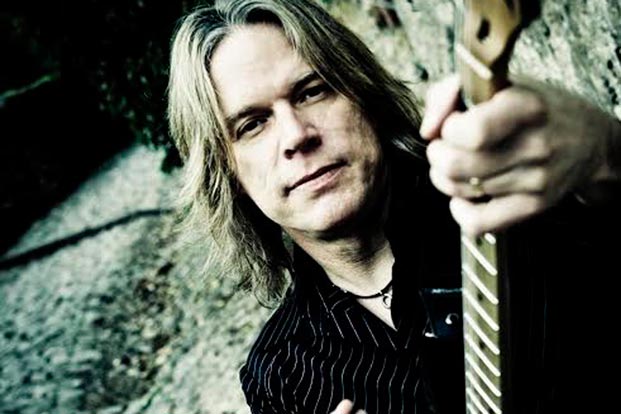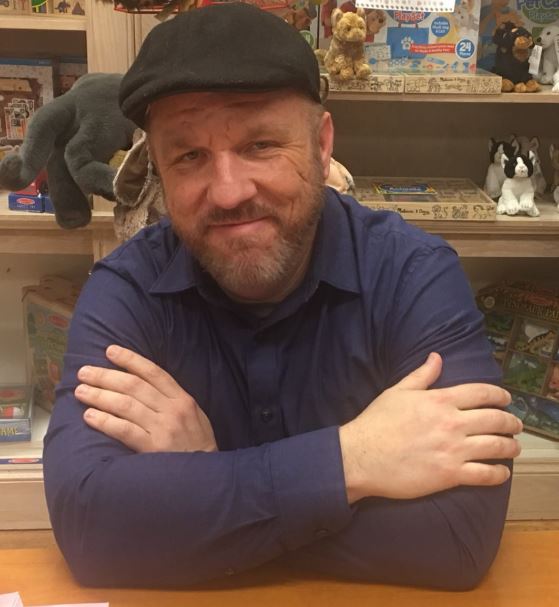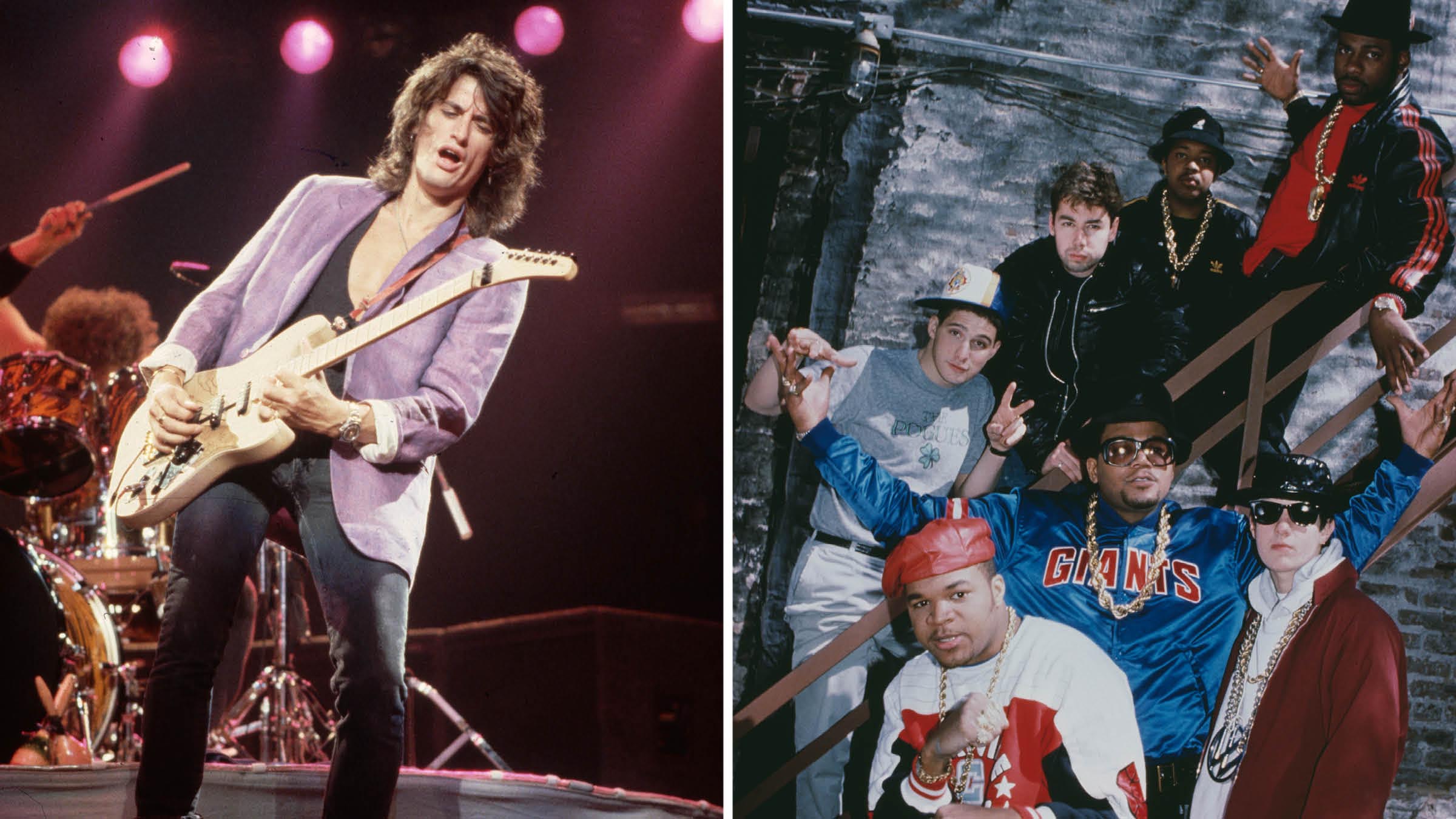Andy Timmons Talks New Album, 'Theme from a Perfect World'
All the latest guitar news, interviews, lessons, reviews, deals and more, direct to your inbox!
You are now subscribed
Your newsletter sign-up was successful

Andy Timmons Band’s eighth album, Theme from a Perfect World, is an inspired, guitar-driven affair made up of 10 hook-filled instrumentals that are sure to satisfy even the pickiest of guitarists.
Produced by Timmons and his longtime bassist, Mike Daane, Perfect World is the ideal balance of melodic virtuosity and inspired songwriting.
In addition to his solo work—which includes his critically acclaimed 2011 instrumental take on the Beatles' Sgt. Pepper’s Lonely Hearts Club Band—Timmons’ resume includes work with Danger Danger, Kip Winger and Simon Phillips.
I recently caught up with the busy guitarist to ask him about Theme from a Perfect World, his gear and memorable moments from his career.
How would you describe Theme from a Perfect World in terms of its sound and how it relates to some of your previous work?
I think it’s a bit of a departure from my last two records [Revolution and Andy Timmons Band Plays Sgt. Pepper]. I remember when we recorded Revolution and I was listening to the basic tracks. I wasn’t feeling inspired, but then I remembered something Steve Vai told me; he said he loved those earlier sessions I did when I was recording songs that just had guitar, bass and drums—ones where you could hear the fingers on the frets and there wasn’t a lot of stuff going on.
That stuck in my mind, and I asked myself, what if I switched gears and did the whole record like that? Just stripping it down to a one-guitar performance and assimilating all of the important elements into one. It became fun and a challenge. That same idea spilled over to the Beatles songs.
This new album is in the direction of the last two records in that we’re still keeping things as natural and organic as possible, but we also gave ourselves the “keys to the kingdom.” It’s given it a vintage kind of feel. I’m very proud of the songwriting and the playing on this record.
All the latest guitar news, interviews, lessons, reviews, deals and more, direct to your inbox!
Is there a different way you approach writing an instrumental album as opposed to one with vocals?
I don’t find it that much different. Things that have resonated with me a certain way are stored in muscle memory and my melodic ear will always steer me. As a writer and improviser, you’re always trying to create an “in the moment," but with just music, you’re not confined to any limitation and can go much deeper. And the deeper your connection is to the instrument, the better your ability is to do that.
Let’s discuss a few tracks from the new album. What can you tell me about “Winterland”?
That song goes back many years. It started when I was playing an old Strat through a Vox AC30 in my studio. At the time, I had been playing a lot of Brazilian music and we spun it into the tom-driven, bossanova groove. It’s got great energy and a cool vibe.
How about the title track?
That one was definitely influenced by my love of Seventies prog and Todd Rundgren. He’s one of my main influences, and it’s a loving tribute to his music and guitar playing. I really wanted to write something in that genre with strong melodic content. It was a chance to tell the world just how much his music means to me.
What’s your live setup like?
It’s been pretty much the same for the last 10 years. I still have my Ibanez prototype that’s been with me as my main guitar, along a few Mesa/Boogies. I’ve got two 1x12 combos sitting on top of two 2x12 Rectifier cabinets. So I’ve got the beautiful combination of the closed back, 30-watt Celestion cabinets and the open-back, 90-watt Black Shadow Mesa speakers. The clean tends to shine through the open back; higher wattage and the leads and distortion sound is benefited by the oomph of the closed back. I also have an awesome signature pedal by JHS called The AT (@). It’s my lead sound in a box.
Can you share the interesting story of how you joined Danger Danger?
I was living in Denton, Texas, after my band had formed. Joe Satriani and Steve Vai were approaching a peak in the heavy rock, lead guitar era and we were playing covers of their songs. I remember we had a three-song demo that ended up in the hands of Buddy Blaze of Kramer Guitars. At the time, Buddy was helping this band called Bad English [John Waite, Jonathan Cain and Ricky Phillips]. Neal Schon had done the demos, but he wasn’t sure if he wanted to do the band because he had a solo record coming out. So they started looking for a blues-based rock player and my name came up.
I went to L.A. for the audition and wound up getting the gig. Although Neal eventually decided he did want to do the band, Buddy told me not to worry because these other guys he knew [Danger Danger], were also looking for a guitar player. They were already signed to Epic and had really dug my demo. Fortunately, they were also in the process of remixing the first record, so I had the chance to recut a few solos when I took the gig. It was amazing career gratification. I’ve got so many great memories and experiences from that time.
What other projects are you working on?
I’ve got a website I’m developing right now that’s part instructional but will also allow me the opportunity to tell more of these stories. It will be photo-driven where I’ll speak about each photo posted and talk about everyone I’ve met in the music businesses. I’m hoping to launch it early next year.
What are you most looking forward to about this next phase of your career?
The continuation of this musical journey. I’m humbled when people come up and tell me that songs connect with them on a peak level. I want to keep growing on the instrument and as a writer. Right now, I’m just scratching the surface. The more I play, the more encouraged I get. That’s what drives me to continue the quest.
James Wood is a writer, musician and self-proclaimed metalhead who maintains his own website, GoJimmyGo.net. His articles and interviews are written on a variety of topics with passion and humor. You can follow him on Twitter @JimEWood.
James is a guitarist and freelance writer who's interviewed some of the biggest names in music. He is the author of four books and his writing credits include work for Guitar World, AXS and Yahoo! as well as for his hometown newspaper where he writes on a variety of topics with both passion and humor. As a guitarist, he's performed everywhere from local bars and nightclubs to some of the biggest stages in front of thousands of music fans.

